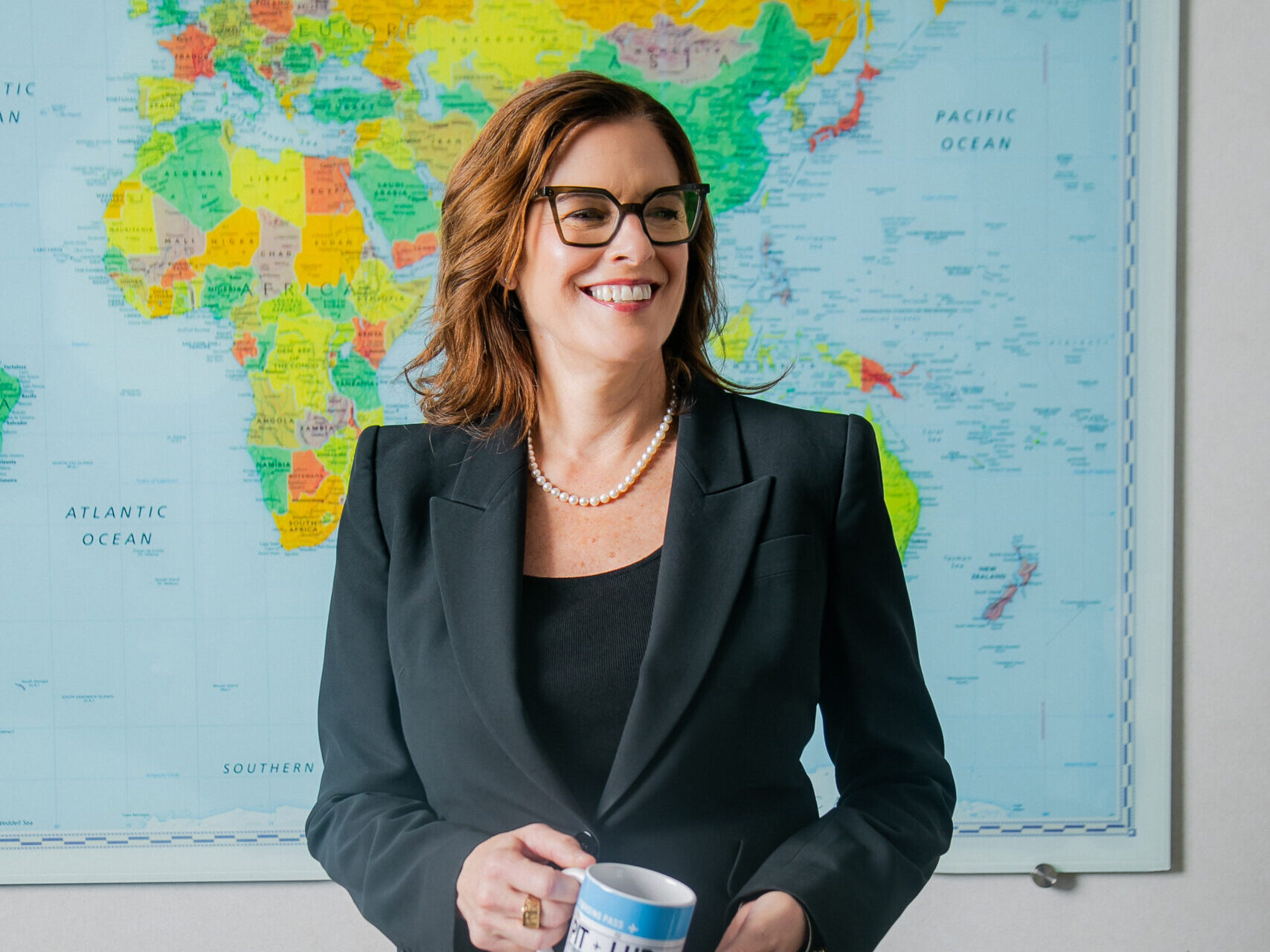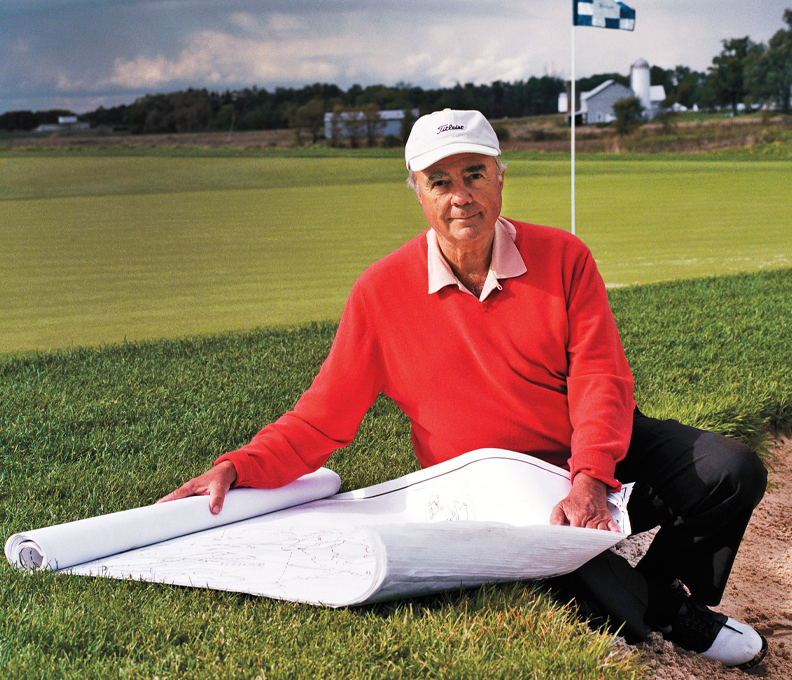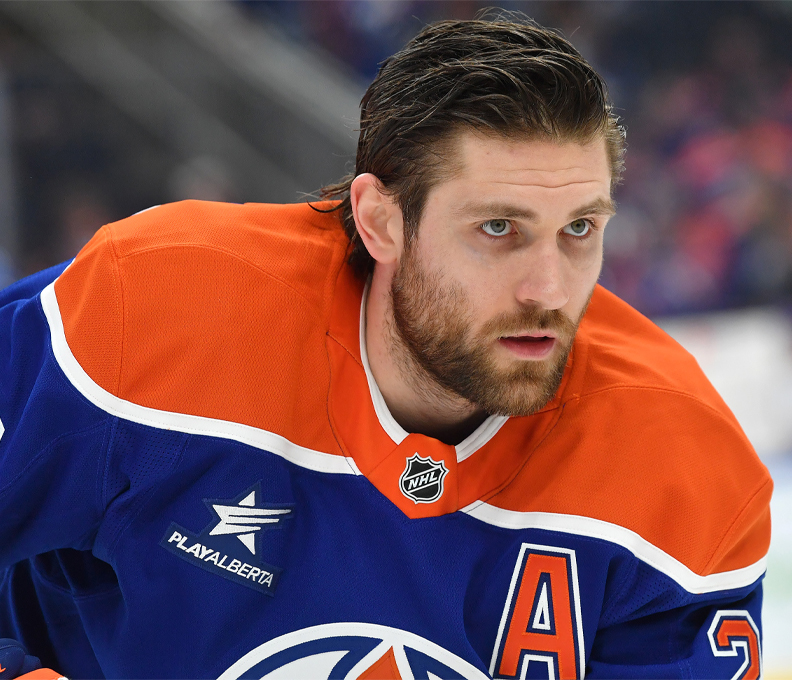The Next Set: Novak Djokovic Talks Business, Balance, and His Future Beyond Tennis
The world's foremost tennis champion looks to the future with his wellness brand corporate collaborations and a thriving charitable foundation
May 1, 2025
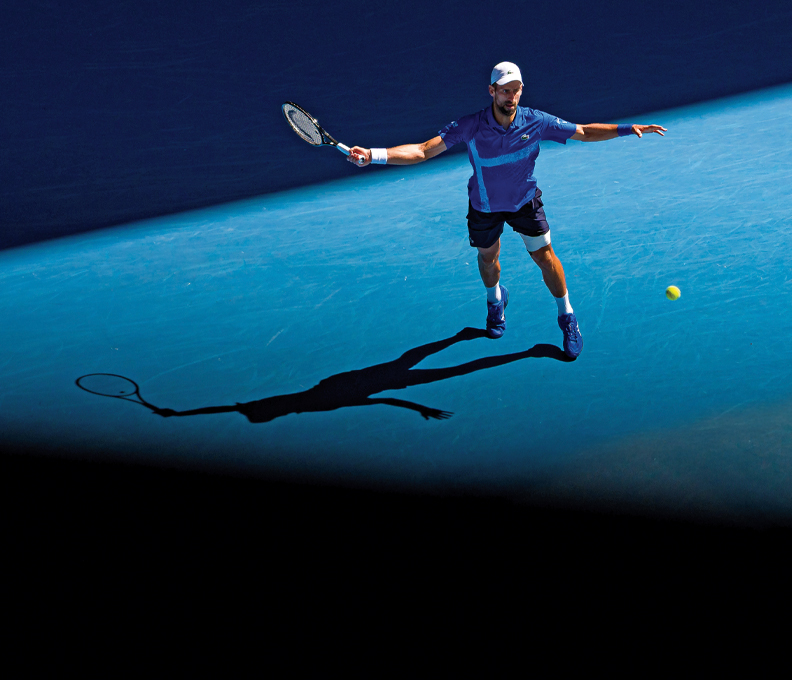
Djokovic at the Australian Open in January / Photo: PA Getty Images
Novak Djokovic these days exudes the relaxed contentment of a man who has nothing left to prove. As well he might. He is already the most successful male tennis player of all time, having amassed a record 24 Grand Slam titles, 99 singles titles and, as of last summer, the Olympic gold medal that eluded him for so long.
That’s his face off the court, at least. On the court there is no place for that relaxed Novak. With his 38th birthday fast approaching, he is still trying to summon that insatiable hunger for victory as he sets his sights on a 100th title.
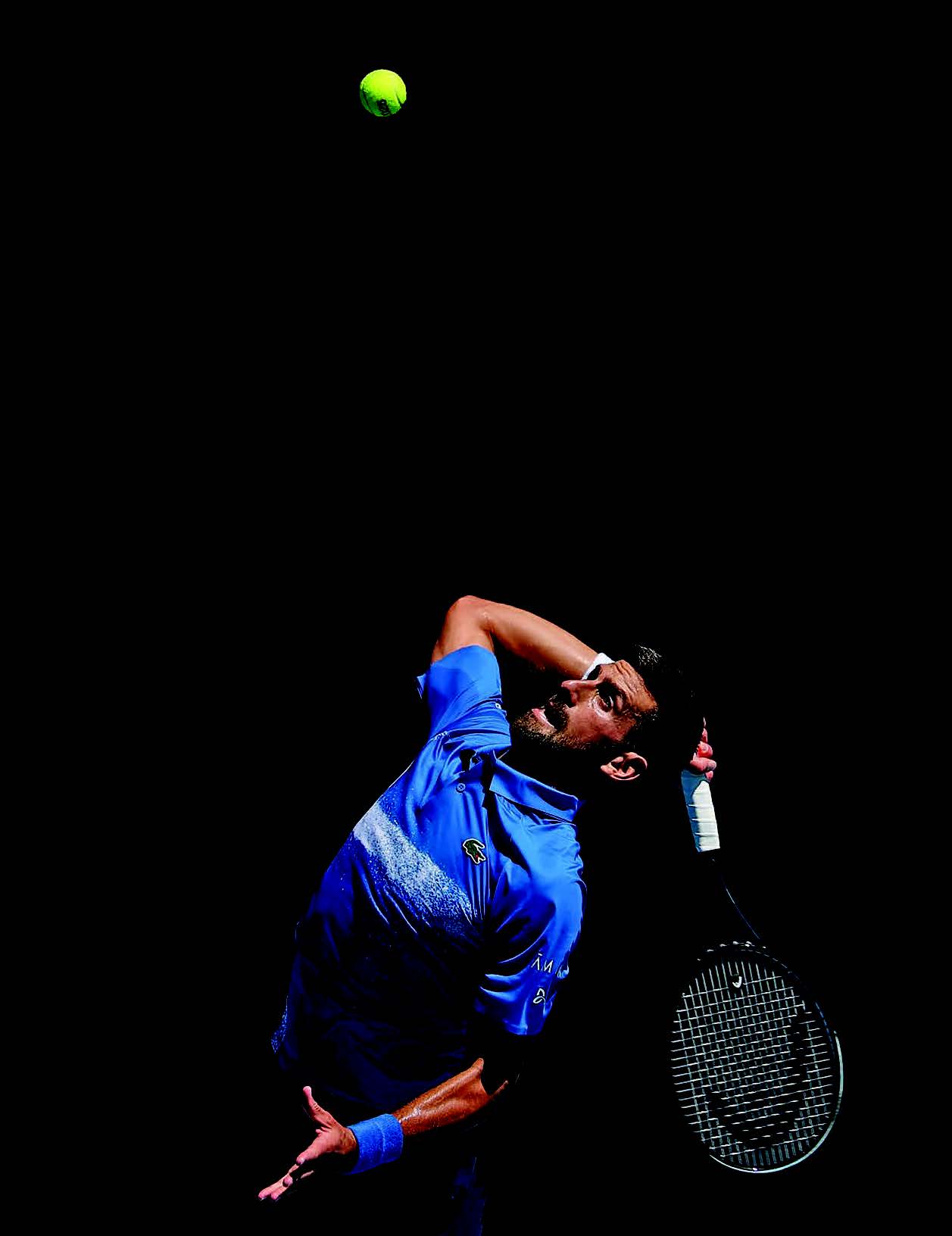
Photo: Courtesy of GettyImages
But there is no sign of that fearsome competitor when we meet—the face that greets me is all smiles. We are here to talk primarily about his interests outside tennis, particularly his entrepreneurial, endorsement and philanthropic activities. And while the R-word (retirement) is not mentioned, our conversation gives clues about the direction in which Djokovic might be drawn once his playing career is finally behind him.
“Tennis has consumed most of my life since a very young age,” he tells me. “I’ve devoted my mental, physical and emotional energy to it—and boy, did I have a reward from it.” That reward amounts to more than $186 million in prize money alone, with an estimated further $365 million in off-court earnings, according to Forbes.
So what, I wonder, has tennis taught him that is transferable to other spheres of life? “When you reach the highest levels of global professional sport, there are certain things it instils in you that are essential fundamentals of business or anything you do in life. Discipline and daily routine are underestimated in terms of how important they are. Discipline, commitment and devotion, but also innovation. Adaptability is unique and very rare.”
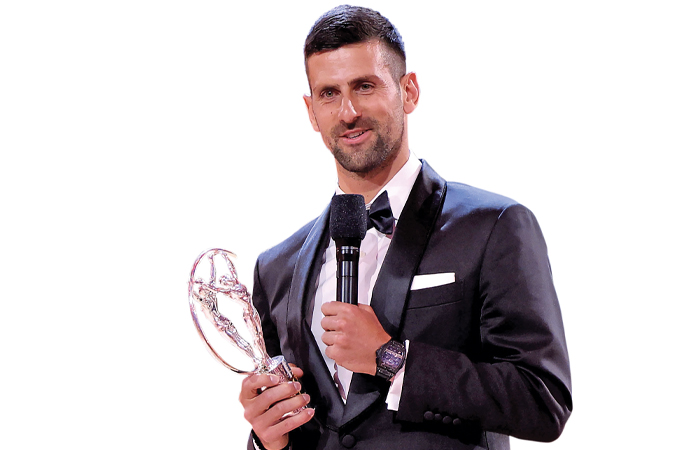
Accepting the Laureus Sportsman of the Year Award 2024 / Photo: Getty Images
For all their undeniable natural talent, one of the things that marked out Djokovic and his closest rivals, Roger Federer and Rafael Nadal, was their relentless willingness to adapt and refine their games, even late in their careers. So it is no surprise to hear that Djokovic advocates constant innovation and improvement above all. “I love a quote that I heard some years ago: The biggest opponent is always the person you were yesterday. ‘Try to be the better version of yourself’ is a kind of life motto for me. Keeping your mind open and curious, surrounding yourself with the right people and not taking anything for granted.”
Health & Wellness
For Djokovic, a major driver of that relentless search for self-improvement has been his interest in wellness. Since 2010, he has adhered to a gluten-free and largely plant-based diet, which he credits with giving him greater stamina and focus. And Djokovic is a proselytizer when it comes to the benefits of a healthy lifestyle.
To this end, he recently launched Sila, a brand of supplements that debuted in the U.S. and Europe in March. It currently comprises sachets in three different flavors as well as magnesium supplements. “We are working on the essential aspects of performance and longevity, including sleep, focus, gut health and muscle support,” he tells me. We are accustomed to the sight of high-performance athletes imbibing products during match breaks, but what are the benefits for us ordinary mortals?
“Well, I’m sure that you want to perform your best, whether at work or at home. And regardless of whether you are an athlete or not, you still have to hydrate yourself. You might get away with one day, two days of malnutrition or issues with hydration, but you won’t go for too long. You eventually have to start thinking about how to improve your life, how to make yourself feel better. Because no one likes those drops in energy level during the day when you feel tired and you have a coffee, another coffee, another coffee to get yourself going and try to survive your working hours. And then you get home and your kids want to have some of you and you’re tired. This is a cycle I’ve been noticing a lot of people trapped in.”
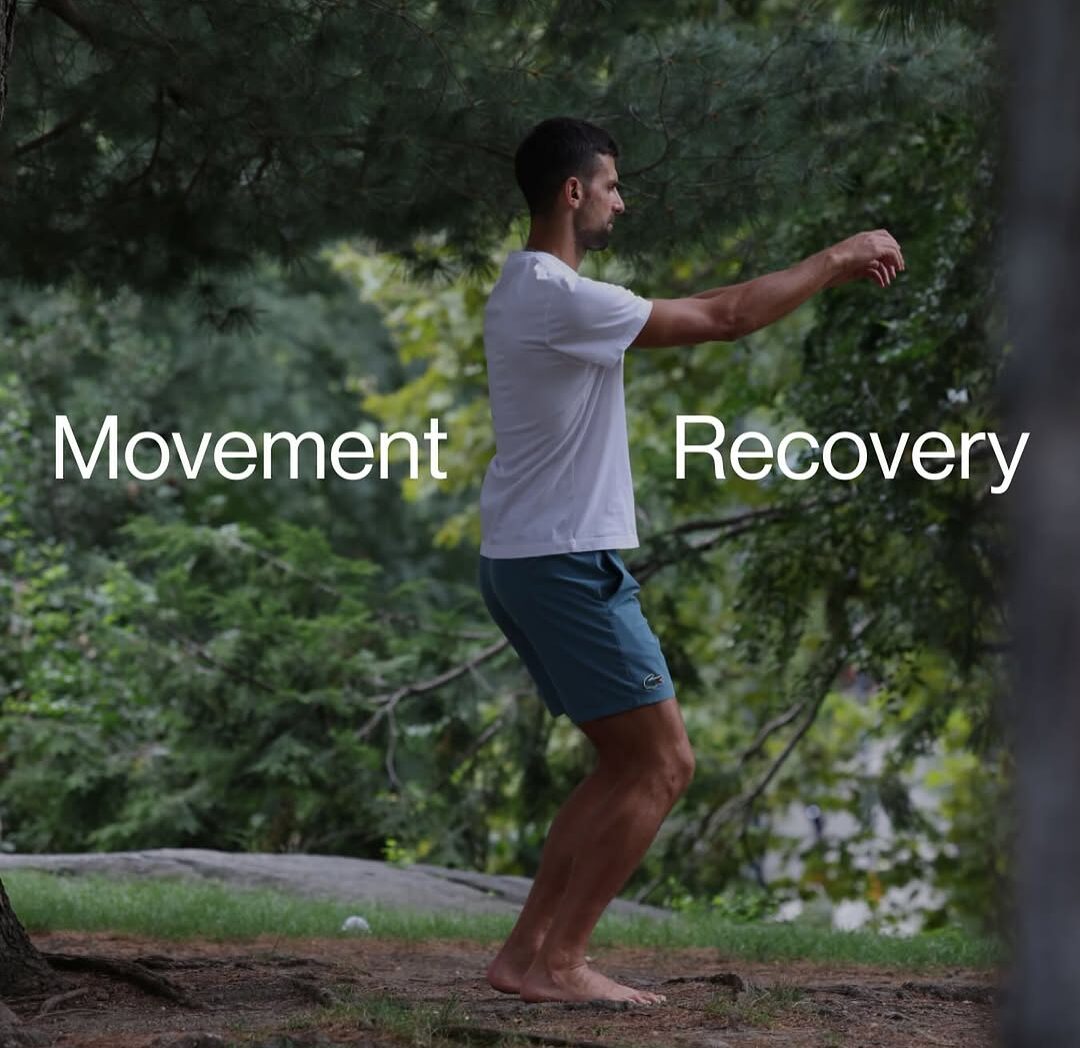
Photo: Courtesy of SILA
One specific example he cites is behavior he observed among medical professionals. “Because of my surgery last year and some other health issues with members of my closest family in the past five or six months, I spent a bit of time in different hospitals in my country and abroad. And I was very intrigued and curious about what they eat and drink. How do the doctors and nurses keep themselves alert and healthy? And I’ve been a bit disappointed because most of them have fast food or fizzy drinks with a lot of chemicals. So that motivated me even more for this project of Sila.”
Djokovic stresses the importance not just of hydration, but of “cellular hydration.” “You drink water, right? So you hydrate yourself. You kill your thirst. But how much of that liquid is really staying inside? Is it really hydrating your cells on a deeper level or is it just flushing out things and washing away some of the good stuff?”
He is also behind Regenesis, an immersive pod designed to promote relaxation and recovery that will be launched later this year. “It’s a completely noninvasive treatment that includes pulsed electromagnetic frequencies, aromatherapy. color therapy, sound frequency and healing therapy.”
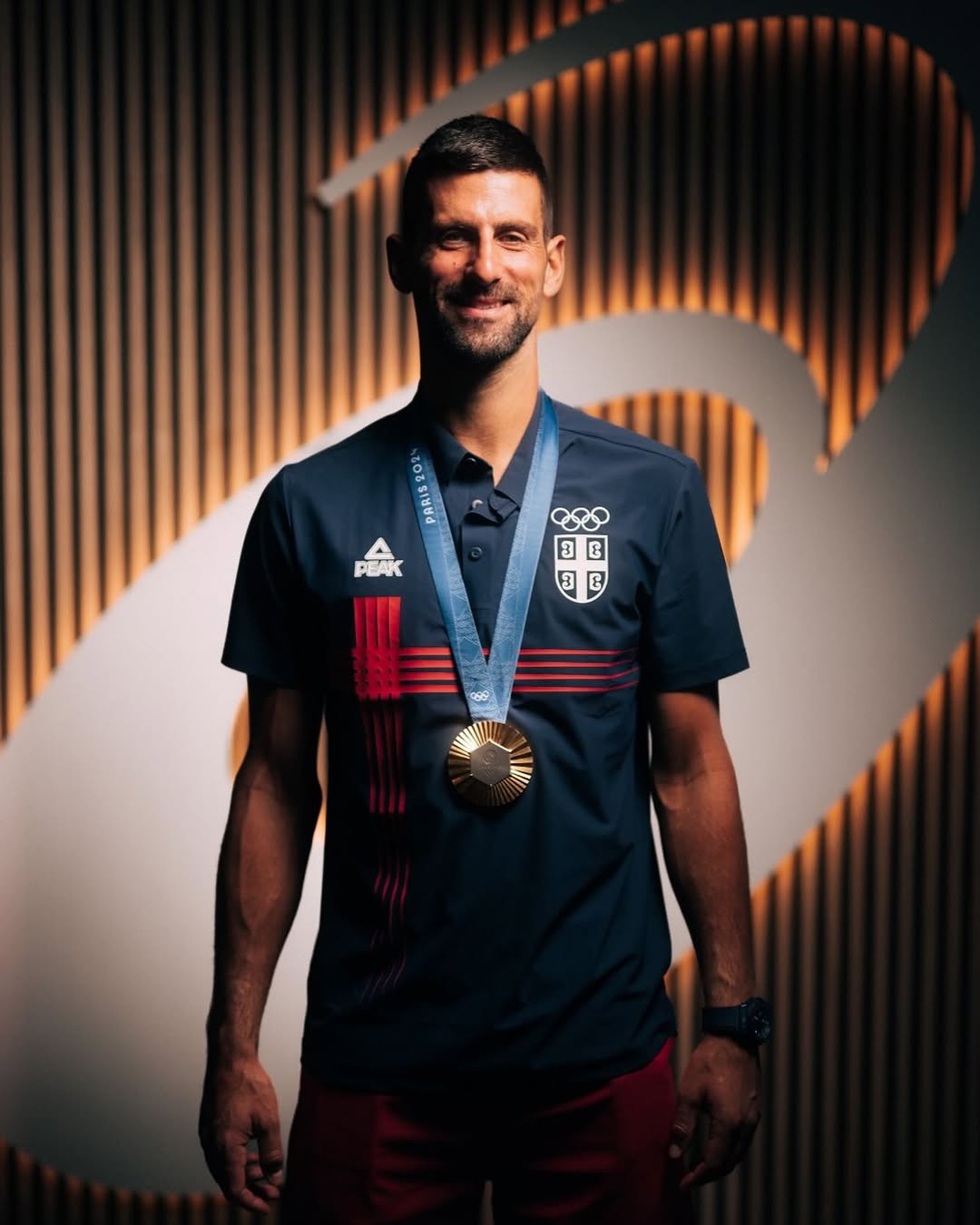
Photo: Courtesy of ASICS
That he has managed to keep himself in first-class physical condition over a 20-year period is undeniable, outlasting almost all his rivals. “One of my greatest wishes is to see more people healthy and less people sick,” Djokovic says. “I’d love to see that. Obviously that doesn’t happen overnight, but I feel like focusing more on prevention and the connection with nature is a long-term success. We need to find a way to balance conventional medicine with alternative medicine. Both are extremely important, but because of the fast-paced life that we are living, we tend to forget about the things that are essential for us to function in a proper way.”
Brand Leader
Djokovic has always steadfastly stuck to his beliefs. This has also led him to reject numerous endorsement deals over the years.
“I’ve personally refused to involve myself in a lot of different businesses and represent different products in the last two decades,” he says, “mainly because I cannot represent something that I don’t believe in, that is not in line with me and my values. Wellness and well-being is the biggest passions of mine, next to tennis and sports and education.”
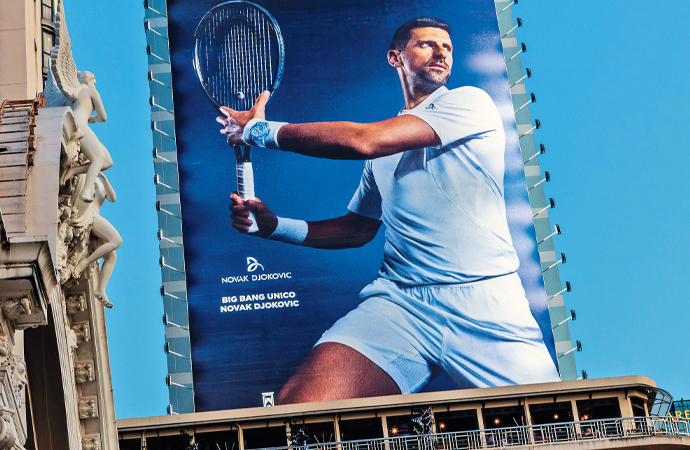
Poster promoting the Hublot Big Bang Unico Novak Djokovic timepiece in Ho Chi Minh City, Vietnam / Photo: Alamy
This commitment has led to a number of ambassadorial roles, including global wellness advisor for Qatar Airways and the luxury hotel chain Aman Resorts. “For me, it was very clear from the beginning that I want to collaborate with brands like Aman, where the quality in every aspect is not compromised,” Djokovic says. “I’m excited about the retreats we are going to do, where I’ll be able to share my experience, my know-how, with people who are interested to learn more about my training, my recovery, my mental strength training.”
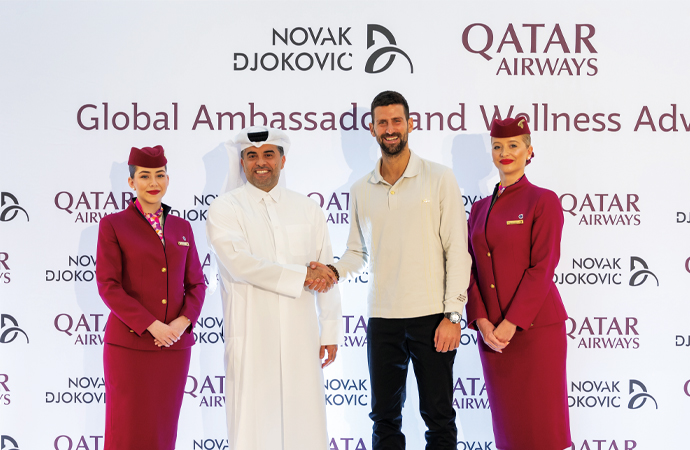
Djokovic being named Global Wellness Advisor for Qatar Airways by CEO Badr Mohammed Al-Meer / Photo: Courtesy of Qatar Airways
So Aman guests will actually be able to go on a retreat with Novak Djokovic? “Yes, we will be doing that,” he confirms. And not just him. “Maria Sharapova is also a wellness brand ambassador for Aman and I’ve been friends with Maria for a long time, so I hope we’ll be able to do some of those retreats together, because the impact would be even greater. We don’t know yet where or when. As my active career is still ongoing, it’s a bit challenging with calendars, but I’m excited because that’s also going to help me develop and wire my brain to wellness and learn how to better express myself to the audience about well-being, while also growing my presence as a brand.”
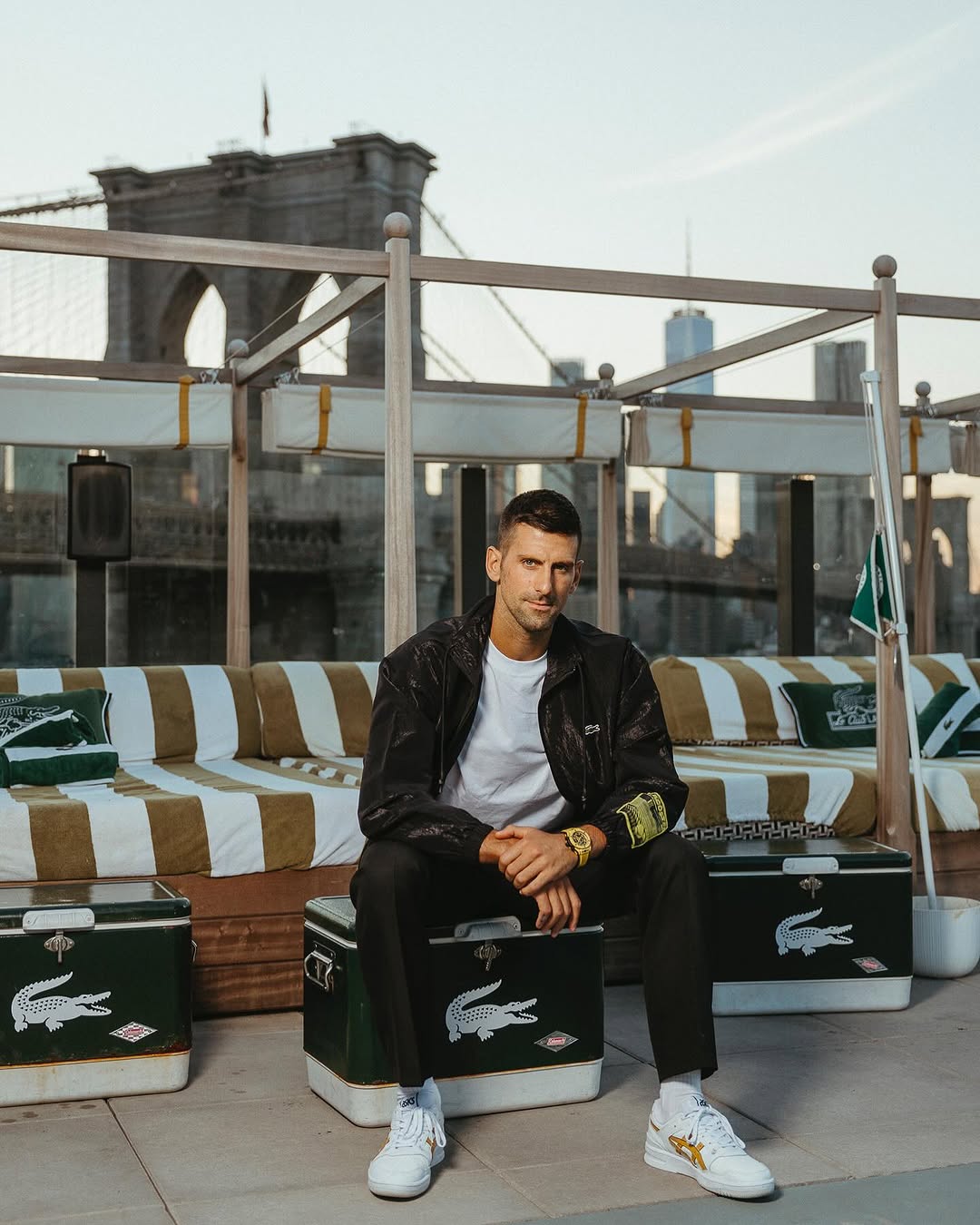
Photo: Courtesy of Lacoste
The Djokovic brand has become a formidable force in recent years, with a rising number of high-profile endorsements. He has lent his name to the Head Speed Legend racquet, the Asics Court FF 3 Novak shoe, a Lacoste clothing line and, most recently, the $52,700 Hublot Big Bang Unico Novak Djokovic timepiece.
Home Life & Giving Back
It seems certain that many avenues will be open to him when retirement does finally come. As an astute, articulate and multilingual analyst of the game, he would surely be a highly sought-after coach, commentator or tournament head. Could he pursue a career in politics? Acting even? Earlier this year, he revived the “Djoker” persona of his early years by delivering a terrific deadpan performance in a spoof “secrets of tennis” video during the Indian Wells tournament that covered how to smash a racquet, peel a banana, etc.
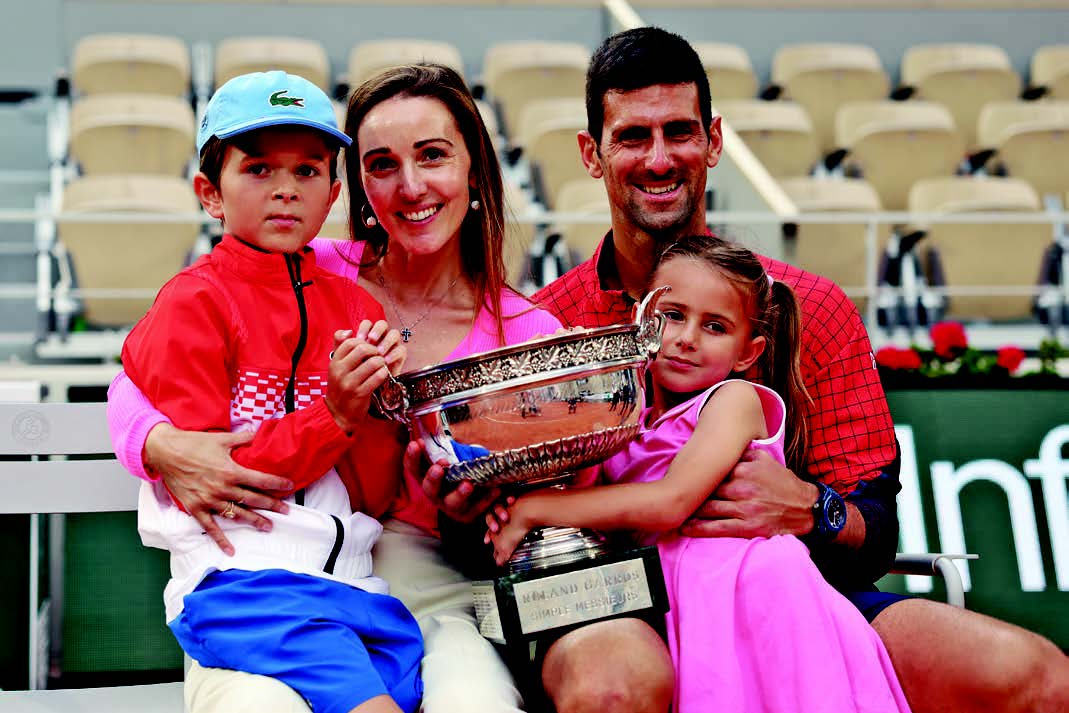
Novak Djokovic with his wife Jelena and children Stefan and Tara /Photo: Courtesy of Novak Djokovic
But when I ask him if anything outside of competitive tennis gives him a similar buzz, he doesn’t equivocate. “Parenthood. I really want to be there for my children and I want to make up for the time I was absent. It’s so nice to immerse fully in activities with them and be present. It just fills my heart with joy.”
This desire to nurture extends beyond his own children to the Novak Djokovic Foundation, which was founded in 2007. “For four years we were really trying to help everyone everywhere,” he recalls. “And then we got to a point where we had to choose a direction, because that’s the only way we were going to make the biggest impact in society.”
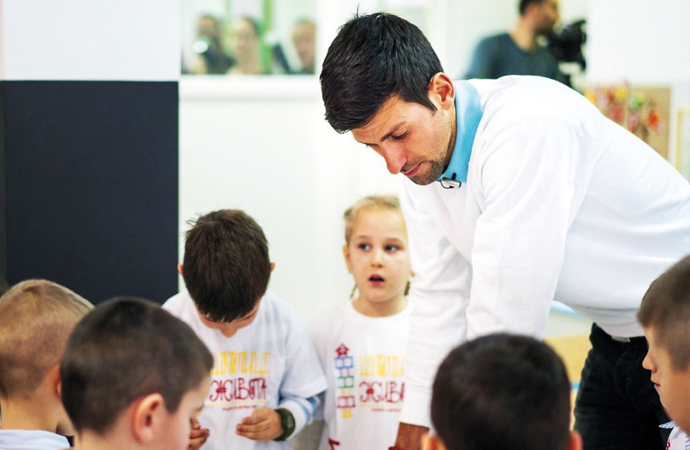
Working with his Novak Djokovic Foundation / Photo: Courtesy of Novak Djokovic
In 2011 they resolved to channel their efforts. At the time he was the Serbia Ambassador for UNICEF, to whom he turned for guidance. “They provided us with certain information that was really revealing to us, but also very concerning, which was at that point more than half of the children in Serbia were not attending any educational facility. So we were questioning why. I mean, it’s not only economical, but also cultural.”
Djokovic beams with pride as he recounts what his foundation has achieved in the past 14 years. “Since then, we have enrolled more than 50,000 children in our programs. We have renovated or rebuilt or built from scratch over 50 kindergartens.”
He and his wife, Jelena, have two children of their own: Stefan, 10, and Tara, 7. I ask him how much of a motivating factor it has been for him to be able to play in front of them. “When I became a parent for the first time, I had a very strong feeling to one day have my son, and of course later on also my daughter, watch me play, particularly at Wimbledon. And for them to be old enough to realize what’s going on and what their father is doing. I’ve been more than blessed to experience that and relive it multiple times. And I’m happy and proud to say that my son’s favorite tournament is Wimbledon. He’s absolutely ecstatic every time we go and he just loves being there. So yeah, it’s constantly about finding new ways to inspire yourself. Because at the end of the day, that’s what gets you up in the morning.”
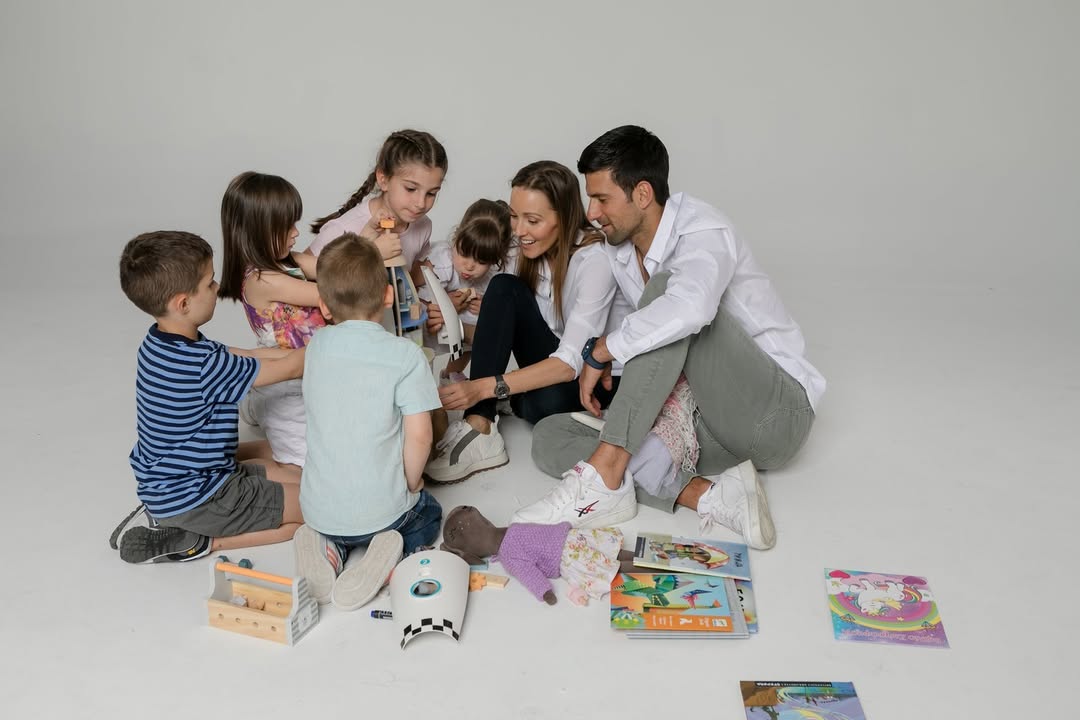
Working with his Novak Djokovic Foundation /Photo: Courtesy of Novak Djokovic
Djokovic has shown no signs yet of a waning appetite for competition, even hiring his former rival Andy Murray as a coach late last year. Yet he is realistic about the uphill struggle he faces to reach the highest heights of the sport again.
“Obviously it’s challenging for me nowadays to produce the results I had when I was at my best. It doesn’t mean that I will never be able to do that again. But that greatness changes its shape, and that’s because you’re a different person on an annual basis, on a monthly basis, on a weekly basis.”
It would be foolish to bet against him winning that 100th tournament, or even a record 25th major. He will not be done until he says he’s done. As he puts it: “Tennis is a sport where it’s necessary to nurture that mentality of, It’s never enough. Because once it’s enough, then it’s really enough and you have to put the racquet aside. And I still….” He pauses. “I still don’t feel it’s enough for me.”

